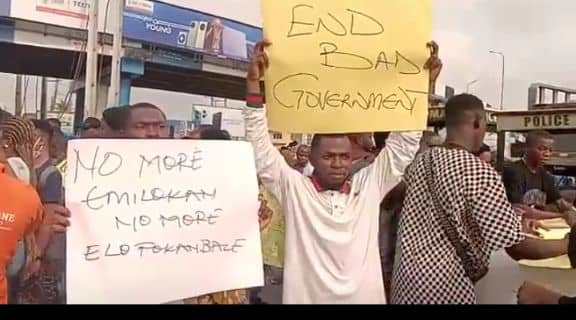Nigerian banks, on February 13, 2024, announced that dollar transactions through international money transfer operators (IMTOs) will now be paid to customers in naira.
The policy is an offshoot of a recent guideline on the operations of IMTOs, issued by the Central Bank of Nigeria (CBN) on January 31, 2024.
According to the apex bank’s directives, the IMTos will no longer facilitate money transfers from Nigeria to other countries.
The new measures also restrict inbound transfers to the naira equivalent of every dollar transfer and compel the IMTOs to quote exchange rates for naira payout to beneficiaries based on the prevailing market rates at the nation’s official foreign exchange market (FX) market.
Advertisement
On February 9, 2024, popular IMTOs — SendWave and WorldRemit — announced they had stopped dollar transfers to Nigeria.
Implementing the same a few days later, local banks said transfers above the naira equivalent of $200 would be sent to the beneficiary’s account, while amounts lower would require a means of identification.
‘SHADOW IMTOs MAY EMERGE’
Advertisement
Commenting on the implications of CBN’s directive, Ayokunle Olubunmi, head of financial institutions ratings at Agusto & Co., said customers who do not have an immediate need for the cash would be impacted most.
“Remittances into Nigeria are the second largest source of FX to the country by Nigerians living abroad,” Olubunmi said.
“Most of the funds coming in are for individuals and some for small, medium entities (SMEs). Those who have immediate need for it might not really mind, but those who do not really need the cash might not be happy about it.
“However, this would be a bit challenging given the high inflation rate that we have. If the naira keeps devaluing, people would definitely want their inflows in foreign currencies.
Advertisement
“People would want to go outside the financial system to try to see how to get funds across. So, that can result in having ‘Shadow IMTOs’ that people would use to transfer funds.”
Olubunmi also said the fundamental issue is for CBN to fix the supply side of the FX market to address demand.
He said customers who have futuristic use of the dollar would be frustrated and might go through the ‘black market’.
‘TRANSPARENCY, CONFIDENCE IN FX MARKET’
Advertisement
Also speaking, Charles Abuede, a research analyst at Cowry Asset Management Limited, said efforts by Olayemi Cardoso, governor of CBN, are being felt in the FX market, describing it as “a good move”.
He said the regulator’s policies “are a step further to creating stability in the exchange rate and help the naira gain value”.
Advertisement
“This would bring about confidence in the FX market and instil a high level of transparency,” Abuede said.
However, the analyst said “the impact would not be now”, noting that the country needs to address insecurity, oil theft, pipeline vandalism, and increasing oil production, for the naira to be strengthened against the dollar.
Advertisement
This, he added, would help Nigeria its with crude oil exports and “also impact the FX reserves and make it easy for supply to banks and IMTOs, thereby reducing the rate”.
‘FX RATE TO STABILISE TEMPORARILY’
Advertisement
On his part, Afolabi Oriyomi, research head, YPEL and country relations and investment professional at Africa Finance Corporation (AFC), said the CBN’s move to restrict all in-bound transfers became necessary due to the naira’s significant fall in value against the dollar.
Before now, according to Oriyomi, most of the diaspora remittances flowed to the parallel market “as people wanted to exchange the USD at a higher conversion rate.
“With this circular, alongside others (including harmonisation of reporting requirements on foreign Currency exposures of banks) from the CBN aimed at a market-reflective rate, the incentive and the possibility of going to the parallel market becomes remote,” he said.
“Generally, the CBN is working towards reducing the supply to the parallel market and increasing the liquidity at the official FX window (NAFEM). With more liquidity in NAFEM arising from this alongside that of harmonisation reporting requirement (that encourages banks to sell forex into the market), this can help stabilise FX temporarily.
“Following these circulars, there has been inflow of over $86 million in the official FX window in the last five months and the clearing of FX backlog to about $2.2 billion.”
Oriyomi, however, said while this move can help stabilise the foreign exchange in the immediate term, there needs to be more synergy with the fiscal side to get more FX proceeds alongside addressing more underlying or structural challenges impeding foreign investments.
Add a comment






